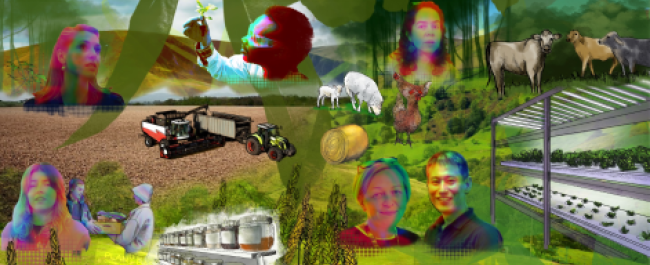Food security
We strive to address the challenge of feeding the growing human population sustainably without devastating our environment.
Contact the food security research leads
Dr Lauren Blake (Geographical Sciences)
Dr Pete Falloon (Biological Sciences)
Bristol Centre for Agricultural Innovation
Find out more, including how to apply for funding
-
 Reducing Nitrous Oxide emissions from grasslands by inoculating them with beneficial rhizobia
Nitrous oxide is a potent greenhouse gas with 300 times the warming potential of carbon dioxide and agriculture is the largest anthropogenic source. Utilising the soil microbiome could hold the key to reducing emissions.
Reducing Nitrous Oxide emissions from grasslands by inoculating them with beneficial rhizobia
Nitrous oxide is a potent greenhouse gas with 300 times the warming potential of carbon dioxide and agriculture is the largest anthropogenic source. Utilising the soil microbiome could hold the key to reducing emissions. -
 Forams as observers of anthropogenic microplastics
Plastic pollution is so widespread that microplastics are found in food chain of most ecosystems, but we are still in the early stages of uncovering the extent of the problem and the threat to marine ecosystems.
Forams as observers of anthropogenic microplastics
Plastic pollution is so widespread that microplastics are found in food chain of most ecosystems, but we are still in the early stages of uncovering the extent of the problem and the threat to marine ecosystems. -
 Using atmospheric greenhouse gas measurements to improve UK food security
Food security in the 21st century will ultimately depend on our ability to mitigate the climate crisis. Agricultural fertilisers are a key component of food security but have negative impacts on our climate and ecology.
Using atmospheric greenhouse gas measurements to improve UK food security
Food security in the 21st century will ultimately depend on our ability to mitigate the climate crisis. Agricultural fertilisers are a key component of food security but have negative impacts on our climate and ecology. -
 Robotically-enabled Plant Virus Diagnostics
Plant viruses decimate a range of food and non-food crops worldwide. Empowering farmers and growers to take early action against outbreaks is vital to sustainably control plant health epidemics.
Robotically-enabled Plant Virus Diagnostics
Plant viruses decimate a range of food and non-food crops worldwide. Empowering farmers and growers to take early action against outbreaks is vital to sustainably control plant health epidemics. -
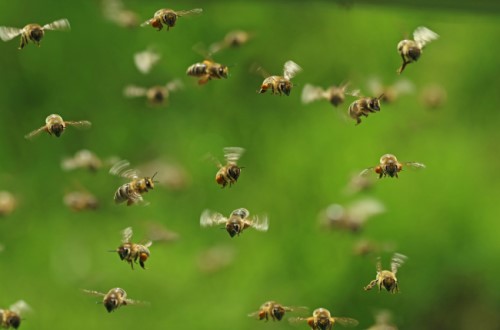 Harmonious coexistence: Enhancing plant pollination with micro-drone swarms while safeguarding insect populations
Pollination is crucial for preserving plant communities. But while the planet’s population continues to rise, increasing the need for pollinators for food production, pollinators are declining. Could innovative robotics technology address this challenge?
Harmonious coexistence: Enhancing plant pollination with micro-drone swarms while safeguarding insect populations
Pollination is crucial for preserving plant communities. But while the planet’s population continues to rise, increasing the need for pollinators for food production, pollinators are declining. Could innovative robotics technology address this challenge? -
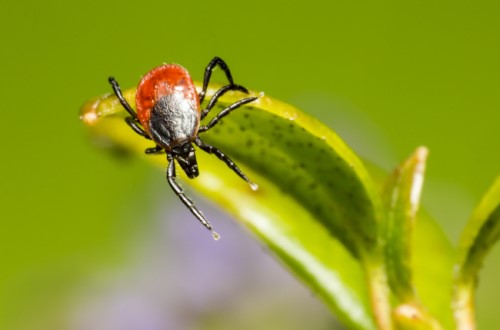 Targeting the host-pathogen interface to tackle tick-borne diseases
How can we secure food production in the face of a changing environment which increases the range of ticks?
Targeting the host-pathogen interface to tackle tick-borne diseases
How can we secure food production in the face of a changing environment which increases the range of ticks? -
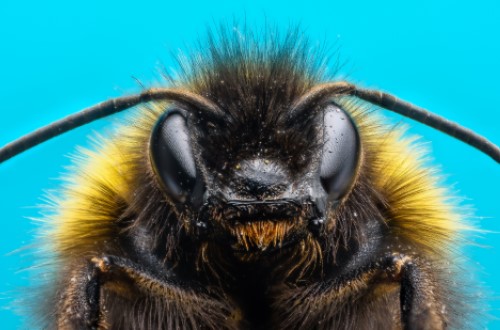 Revealing how bees sense electric fields: material properties of bee antennae using x-rays
Understanding the effects of anthropogenic change on the function of bee sensory systems and the impact that these changes may have on both pollination biology and population dynamics.
Revealing how bees sense electric fields: material properties of bee antennae using x-rays
Understanding the effects of anthropogenic change on the function of bee sensory systems and the impact that these changes may have on both pollination biology and population dynamics. -
 Future Pasts: Pastoral archaeology to inform the future of sustainable farming
How can we protect traditional farming practices and use them to inform a more sustainable farming future?
Future Pasts: Pastoral archaeology to inform the future of sustainable farming
How can we protect traditional farming practices and use them to inform a more sustainable farming future? -
 Working with city-level policy makers to reduce malnutrition in Asia
How can we tackle malnutrition - the leading cause of disease and mortality globally and in Southeast Asia?
Working with city-level policy makers to reduce malnutrition in Asia
How can we tackle malnutrition - the leading cause of disease and mortality globally and in Southeast Asia? -
 Indigenous food systems in protracted crisis: Kashmir and Guatemala
Pushing the boundaries of transdisciplinary food systems research, by better understanding how indigenous food systems support food and ecological security, rooted in local knowledge and cultural systems in regions of protracted political and environmental crises.
Indigenous food systems in protracted crisis: Kashmir and Guatemala
Pushing the boundaries of transdisciplinary food systems research, by better understanding how indigenous food systems support food and ecological security, rooted in local knowledge and cultural systems in regions of protracted political and environmental crises. -
 Understanding agricultural azole use, impacts on local water bodies and AMR
Building an interdisciplinary evidence base in Devon and Bristol.
Understanding agricultural azole use, impacts on local water bodies and AMR
Building an interdisciplinary evidence base in Devon and Bristol. -
 Reducing food emissions
How do we reduce food emissions without unintended consequences on health or wider sustainability?
Reducing food emissions
How do we reduce food emissions without unintended consequences on health or wider sustainability? -
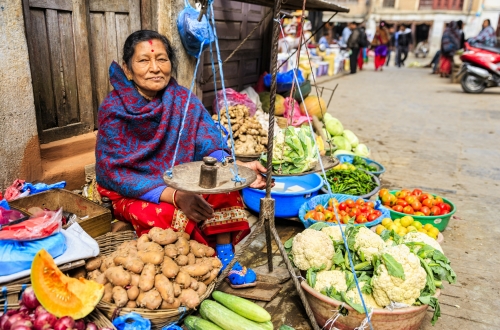 Are pollinators the key to healthy diets in Nepal?
Working together to discover the links between pollinators, climate change and human health in Nepal.
Are pollinators the key to healthy diets in Nepal?
Working together to discover the links between pollinators, climate change and human health in Nepal. -
 Could disappearing glaciers threaten regional food security?
A rapidly warming climate means Himalayan Nepal’s vital natural reservoirs are vanishing fast.
Could disappearing glaciers threaten regional food security?
A rapidly warming climate means Himalayan Nepal’s vital natural reservoirs are vanishing fast. -
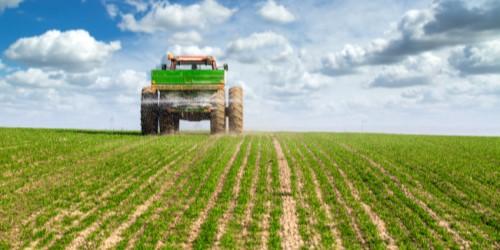 Nitrogen in a changing earth system
Humans are altering the natural nitrogen cycle which is affecting our planet and health, and contributing to climate change.
Nitrogen in a changing earth system
Humans are altering the natural nitrogen cycle which is affecting our planet and health, and contributing to climate change. -
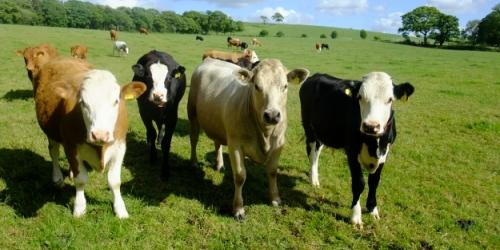 Improving the sustainability of livestock farming
The global warming effects of livestock are supposedly well established. But actually, it may be a more complex picture than previously assumed.
Improving the sustainability of livestock farming
The global warming effects of livestock are supposedly well established. But actually, it may be a more complex picture than previously assumed. -
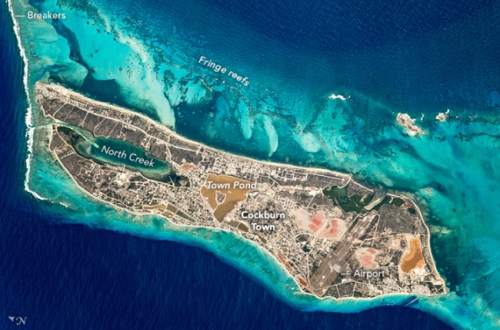 Strategies of resistance and resilience to food insecurity and environmental change: the informal trading of food in the Caribbean
In the Turks and Caicos Islands access to food through formal channels is too expensive for large segments on society; relying instead on covert, informal trade for nutritious food.
Strategies of resistance and resilience to food insecurity and environmental change: the informal trading of food in the Caribbean
In the Turks and Caicos Islands access to food through formal channels is too expensive for large segments on society; relying instead on covert, informal trade for nutritious food. -
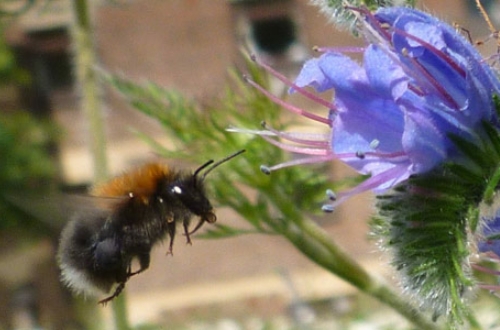 Making cities more pollinator-friendly
As we face an increasingly urban future, we need to protect and cultivate greater biodiversity in our cities for the sake of people and pollinators alike.
Making cities more pollinator-friendly
As we face an increasingly urban future, we need to protect and cultivate greater biodiversity in our cities for the sake of people and pollinators alike. -
 Palm oil in nutrition, health and the environment: Perceptions from a sub-Saharan African setting
We are exploring the misconceptions about the health and ecological impact of palm oil in Cameroon.
Palm oil in nutrition, health and the environment: Perceptions from a sub-Saharan African setting
We are exploring the misconceptions about the health and ecological impact of palm oil in Cameroon. -
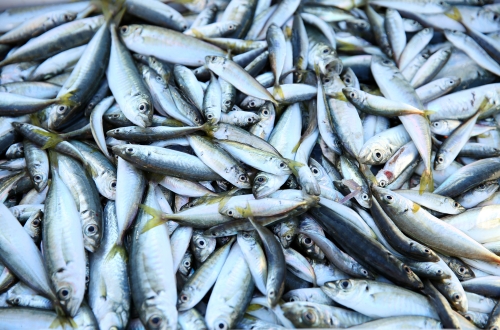 Guiding policy on oceans’ food production potential
As an ever-expanding human population creates spiralling demand for food, policymakers are looking to the oceans to help prevent a crisis.
Guiding policy on oceans’ food production potential
As an ever-expanding human population creates spiralling demand for food, policymakers are looking to the oceans to help prevent a crisis. -
.jpg) Characterising the nature, origins and impact of dissolved organic matter in freshwater ecosystems
From toxic algal blooms to the mobilisation of pollutants, could understanding the complexities of dissolved organic matter help society tackle environmental decline?
Characterising the nature, origins and impact of dissolved organic matter in freshwater ecosystems
From toxic algal blooms to the mobilisation of pollutants, could understanding the complexities of dissolved organic matter help society tackle environmental decline? -
 Food as a commons: Setting an innovative research and impact agenda for the future of food in the UK
Thinking of food as a 'commons' in the transition to more bottom-up food systems.
Food as a commons: Setting an innovative research and impact agenda for the future of food in the UK
Thinking of food as a 'commons' in the transition to more bottom-up food systems. -
 Combating crop-destroying viruses in Africa
Whether it affects cassava, yam, cocoa, maize or almost anything else, the decimation of Africa’s key crops by vector-borne viruses is deepening poverty and breeding malnutrition.
Combating crop-destroying viruses in Africa
Whether it affects cassava, yam, cocoa, maize or almost anything else, the decimation of Africa’s key crops by vector-borne viruses is deepening poverty and breeding malnutrition. -
 Cyber security for food security
Rapid adoption of sensor-driven technology in the food sector requires careful consideration of the cyber security implications for such critical infrastructure.
Cyber security for food security
Rapid adoption of sensor-driven technology in the food sector requires careful consideration of the cyber security implications for such critical infrastructure.
What we do and why we have impact
We investigate the confluence between climate change, flood and drought events and plant and animal health; navigating this critical nexus while sustaining or increasing food production.
-
Connected
Our experts span all of the University’s Faculties, from human, animal and plant health to social scientists and are strongly connected to practitioners, from Somerset farmers to UK poverty experts to global development agents.
-
Successful
Among our flagship successes is the ongoing characterisation of the wheat genome; we have identified and shared an open database of genetic markers of direct practical use to breeders across the world.
-
Fundamental
We continue to make fundamental advances in understanding plant-soil interactions, plant pathogens and the effect of climate change on plant physiology.
